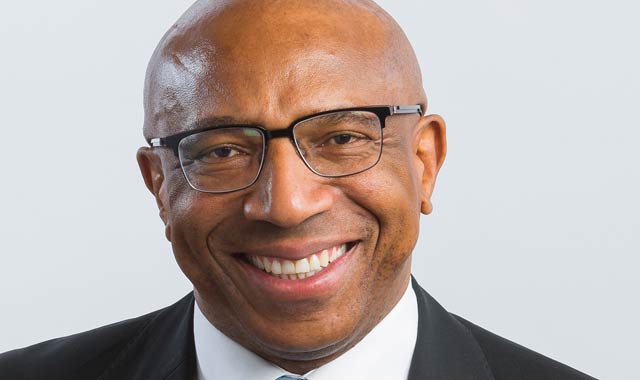
Telkom has revealed plans to re-farm half of its spectrum in the 1,8GHz band for 4G/LTE services as it bets on data rather than voice as the big growth driver in mobile services.
The company’s CEO, Sipho Maseko, revealed in an interview with TechCentral on Monday that it will re-farm 5MHz of its 10MHz allocation in the 1,8GHz band, which it currently uses for 2G voice services, for mobile 4G/LTE services.
The decision comes in spite of the fact that Telkom has a massive 60MHz of spectrum in the 2,3GHz band, which it uses mainly for providing fixed-wireless LTE and LTE-Advanced services into homes and businesses.
BMI-T senior telecommunications consultant Tim Parle said the reason is likely to do with the fact that not many smartphones currently support LTE technology at 2,3GHz.
“This approach will allow Telkom access to a larger portfolio of phones,” Parle said.
In addition to the 10MHz Telkom has access to at 1,8GHz, it also has 10MHz at 2,1GHz, which it uses for 3G, Maseko said. Unlike mobile rivals Vodacom, MTN and Cell C, it does not have access to sub-1GHz spectrum. The three larger operators use their allocations in the 900MHz band for providing 2G services (and 3G in some places).
Parle said that re-farming half of its 1,8GHz allocation will not have an impact on Telkom’s 2G users. “The volumes are too low,” he said.
“Telkom’s annual financial report, published on Tuesday, shows it has 2,7m active mobile subscribers, of which 1,9m are prepaid,” Parle said. “Bear in mind that Vodacom and MTN have been re-farming their 1,8GHz spectrum for some time now and have managed to retain a sufficient service (recognising that they have 900MHz spectrum, too).”

Telkom also has a roaming agreement in place with MTN. This allows Telkom’s mobile users to roam on MTN’s 2G and 3G infrastructure when they are not in a Telkom coverage area (mainly outside the cities). However, they can’t roam onto MTN’s 4G/LTE network.
Telkom’s decision to re-farm its 1,8GHz spectrum follows the collapse of a proposed wide-ranging network sharing and infrastructure outsourcing deal with MTN South Africa. That deal was torpedoed by the competition authorities. Telkom also failed to reach a deal to acquire Cell C after it couldn’t reach an agreement with the latter operator’s shareholders over a fair valuation.
Maseko told TechCentral this week that although Telkom’s mobile business remains “subscale”, it is no longer losing money.
“What has been useful is we have been running this business as if there isn’t going to be a transaction. We have been prudent in investing in capital, looking for profitable growth.”
He said Telkom has negotiated a more favourable roaming agreement with MTN and is more strategic in building base station infrastructure based on analysing network traffic patterns.
He said the company intends expanding its LTE network this financial year, and will ramp up LTE-Advanced coverage. “Essentially, the bet we are making is a data-led future — and that means LTE, LTE-Advanced and fibre.” — © 2016 NewsCentral Media




